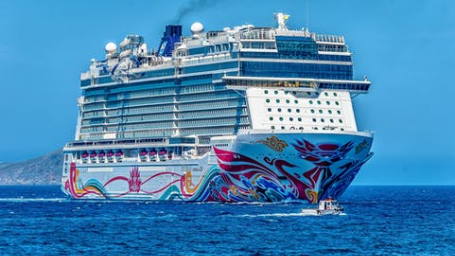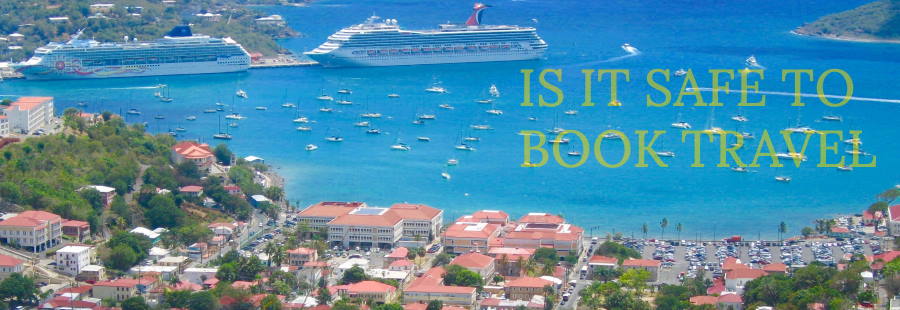Navigating Travel Safely: A Comprehensive Guide to Cruising, Flying, and Staying in Hotels
In these uncertain times, the question of safety in travel – be it cruising, flying, or staying in hotels – is more pertinent than ever. The travel industry emphasizes the importance of vigilance, advocating for calm, rational, and fact-based decision-making. With the landscape of travel continuously evolving, understanding and navigating the cancellation policies of cruise lines, airlines, and hotels become crucial for travelers. This comprehensive guide aims to address these concerns and offer insights into making informed travel choices.
30%
Cruise Safety and Cancellation Policies
Is Cruising Safe?
Cruising has always been a popular mode of travel, offering an all-inclusive experience with the opportunity to explore multiple destinations. However, the safety of cruising has come under scrutiny. Cruise lines have responded by implementing stringent health protocols, including enhanced sanitation measures, health screenings, and capacity reductions to ensure passenger safety.
Cruise Cancellation Policy

Understanding the cancellation policy of your cruise line is vital. Most cruise lines have adapted flexible policies, allowing guests to cancel up to 48 hours before departure with full refunds or future cruise credits. It’s important to read the fine print, as policies may vary based on the cruise line and booking date.
What is the policy for getting a refund if I need to cancel my cruise?
The refund policy for canceling a cruise varies by cruise line and fare type. Generally, standard fares allow cancellation with a full or partial refund if done well in advance, but the refund amount often decreases as the departure date approaches. Some fares, especially promotional or discounted ones, might be non-refundable or offer only cruise credits instead of a cash refund. Additionally, purchasing travel insurance can provide more flexibility and coverage for cancellations under certain circumstances. It’s crucial to review the specific cancellation policy of the cruise line at the time of booking.
Air Travel Safety and Ticket Cancellation Policies
Is Air Travel Safe?
Airlines have taken significant steps to ensure passenger safety, including rigorous cleaning procedures, mandatory face masks, and HEPA filters on board. While air travel does involve some level of risk, these measures aim to minimize it.
Airline Ticket Cancellation Policy
The pandemic has forced airlines to offer more flexible cancellation policies. Many airlines now allow changes or cancellations without fees, offering credits for future travel. However, policies differ among carriers, and it’s crucial to understand the specifics, including any expiration dates on credits.
The 24-Hour Flight Cancellation Rule
How to Cancel a Flight Within 24 Hours of Booking: A Step-by-Step Guide
Am I Entitled to a Refund?
Refunds : US Department of Transportation
Hotel Stays: Safety and Cancellation Policies
Is Staying in Hotels Safe?
Hotels have also revamped their safety protocols, focusing on cleanliness and social distancing. Enhanced cleaning of high-touch areas, digital check-ins, and reduced capacity in public spaces are some measures hotels have implemented. While risks cannot be entirely eliminated, these steps are designed to safeguard guests.
Hotel Cancellation Policy
Hotel cancellation policies have become more lenient, with many offering free cancellations up to 24 hours before check-in. However, this can vary based on the hotel chain, the rate type, and the booking platform. It’s advisable to review these policies carefully at the time of booking.
The Risk of Bankruptcy in the Travel Industry
The financial strain on the travel industry cannot be overlooked. The possibility of cruise lines or airlines filing for bankruptcy is a reality. In such cases, the implications for consumers can be significant, potentially leading to lost funds or vouchers. It’s prudent to stay informed about the financial health of the travel provider you choose.
Protecting Your Travel Investment
Travel Insurance
Investing in comprehensive travel insurance can provide a safety net. Policies covering trip cancellations, interruptions, and medical emergencies are highly recommended. Ensure that the policy covers COVID-19 related issues.
Using Credit Cards for Bookings
Booking with a credit card can offer additional protections, such as chargebacks in case of service non-delivery due to bankruptcy.
Staying Informed
Keeping abreast of the latest travel advisories, health protocols, and border policies is essential for any travel plan. Government websites and travel advisories are reliable sources for current information.
A Balanced Approach to Travel
Travel, in its essence, is about exploring new horizons and experiences. In the current climate, it requires a more calculated approach. The key lies in staying informed, understanding the risks, being prepared with contingency plans, and making decisions based on the latest factual information.
While the travel industry, like all of us, navigates through these challenging times, the priority remains the safety and well-being of travelers. By being vigilant about safety protocols, flexible in plans, and aware of the financial aspects of travel bookings, you can still fulfill your wanderlust with a sense of security and peace of mind.
In conclusion, yes, it is safe to cruise, fly, and stay in hotels, provided you take the necessary precautions and stay informed about the changing landscape of travel. With the right planning and understanding, your journey can be as fulfilling and enriching as ever. Remember, the world is waiting to be explored, safely and responsibly.
Cruise DealsScore a Valentine’s Day Cruise DEAL!
Cruise Critic
Is it safe to cruise?




